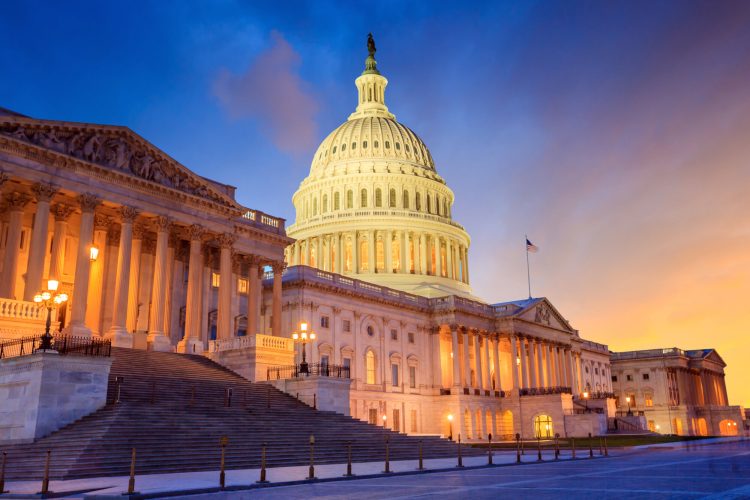On the latest Facing the Future, I was joined by Concord Coalition Executive Director, Bob Bixby, and former Congressman from Minnesota, Tim Penny. We discussed challenges facing the incoming Biden administration and the new Congress as we begin 2021, the importance of long-term fiscal responsibility, and U.S. House of Representatives rules changes that affect PAYGO.
[Note: Portions of this week’s Facing the Future can be seen in the video clips posted below.]
On the challenges facing the Biden administration, Congressman Penny led with COVID-19 relief.
“There’s going to be a lot of pressure on Biden to put together another package much larger than any we’ve previously considered,” Penny said. “I think he needs to resist that pressure … another package would likely include all sorts of items that are unrelated to the COVID challenge and result in spending on a whole host of activities … that really are not directly related to the needs that exist.”
Beyond COVID-19 relief, Penny highlighted industries that are struggling and unlikely to come back in the same capacity – if at all – and the workers in those industries that are going to need specific attention.
“There needs to be some thought given to how we retain and assist those folks until they find suitable employment,” Penny added. “More broadly, especially now that we have a vaccine available, the sooner we can reopen the economy in a wholesale way, the better.”
Congressman Penny also advocated for longer-term investments, like infrastructure, but he suggested properly paying for such investments.
“For the most part, our government policy, especially in this post-pandemic era in which we have ballooned the debt by several trillion dollars, needs to return to a pay-as-you-go approach,” he said. “There are investments we could make … but they should not be made in a fiscally irresponsible way.”
“PAYGO works when exceptions aren’t in play, and it will never work as long as there are exceptions because one exception leads to another,” Penny added.
Congressman Penny expressed hope that the bipartisan working group of policymakers that came together to jumpstart the COVID-19 relief legislation process at the end of 2020 could serve as a model for additional policy making, especially with such a closely divided Congress.
“Now, with much much narrower majorities in both chambers, it doesn’t require a group of 50 or 60, 5 or 6 can make the difference if they are stalwart and if they are courageous enough to stand up to the pressures,” Penny said. “I do have some optimism that in this closely divided Congress, a small group of moderates, centrists can have a hugely important role.”
“The Problem Solvers Caucus, and the bipartisan group in the Senate are in a unique position to sort of show a way forward,” he added.
On the need for fiscal responsibility and the reality that budget deficits still matter, Congressman Penny expressed worry over the lack of attention given to the nation’s growing long-term debt and deficit trends. And he borrowed the words of former Congressman Charlie Stenholm, with whom Penny served.
“He has said hundreds of times over the years, ‘when you find yourself in a hole, stop digging,’ ” Penny said. “At the very least, in the current climate, the best thing to do is to just stop digging the hole deeper, and that’s where pay-as-you-go and other important policies come into play.”
Bixby joined the program to discuss recent rules changes in the House pertaining to PAYGO, or pay-as-you-go.
“It was a concept that came out of budget reforms in the 1990s, and it basically said that if you’re going to add to mandatory spending … you need to offset it somehow with a mandatory spending cut or revenue increase,” Bixby said.
“If Congress wanted to enhance benefits or create a new entitlement program, under PAYGO, it would have to find some way to pay for that,” he said. “The same is true on the revenue side; if you’re going to cut taxes, the rule was that you needed to cut spending by a similar amount or raise some other revenue somewhere else in the tax code.”
Bixby added that automatic increases based on existing law and demographic trends are not covered by PAYGO, neither is discretionary spending, such as national defense and domestic investment.
In its latest rules package, the House built in new exceptions to PAYGO rules.
“You have to define what PAYGO is going to apply to, and in this current environment, the new House rule makes it clear that PAYGO should not apply to things passed to address the pandemic and climate change.”
The climate change exception is much more amorphous than agreeing that COVID-19 emergency relief does not need to be paid for, Bixby said.
“That could be such an enormous exception, that it could really swallow the rule,” he said. “There’s a lot of things that would fall into that category that could then be exempted.”
Hear more on Facing the Future. I host the program each week on WKXL, NHTalkRadio.com (N.H.), and it is also available via podcast. Join me and my guests as we discuss issues relating to national fiscal policy with budget experts, industry leaders, and elected officials. Past broadcasts are available here. You can subscribe to the podcast on Spotify, Pandora, iTunes, Google Podcasts, Stitcher or with an RSS feed. Follow Facing the Future on Facebook, and watch videos from past episodes on The Concord Coalition YouTube channel.
Continue Reading










